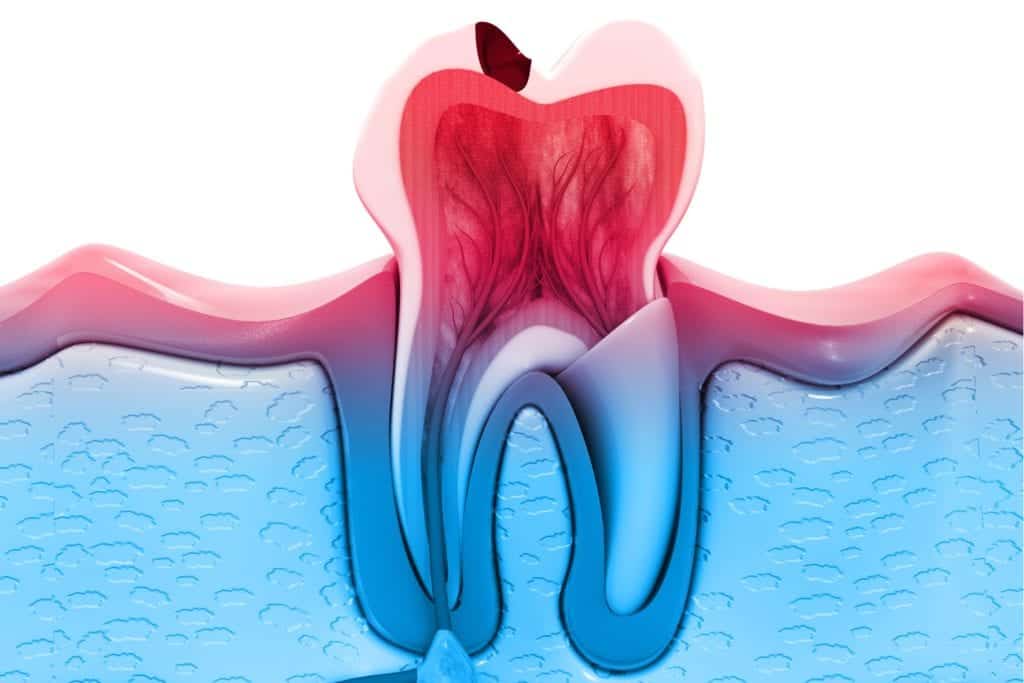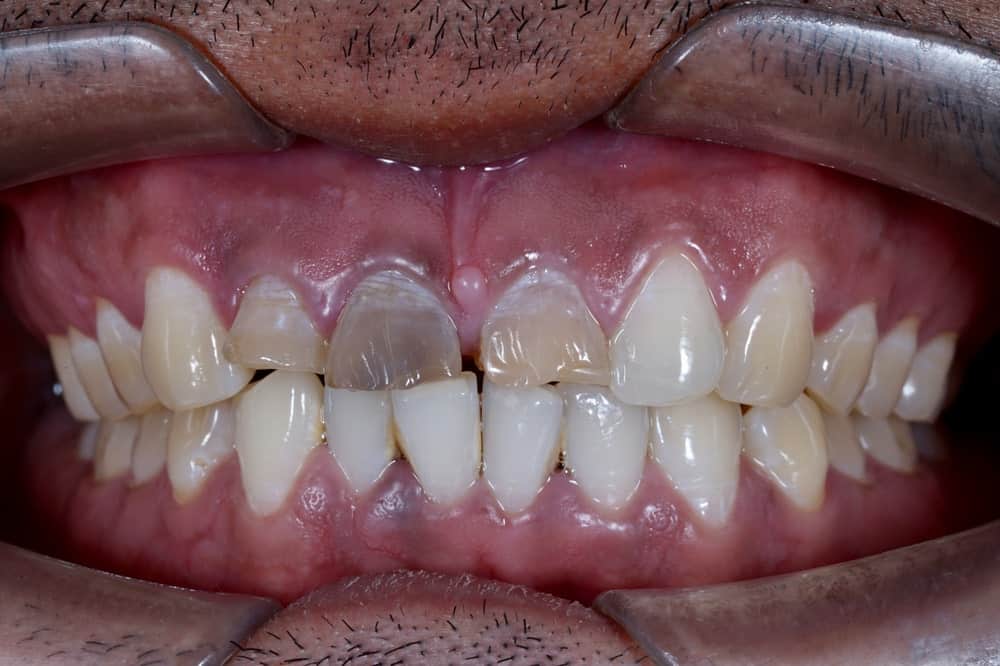The phrase “root canal” has a predominantly negative connotation among many people. This is largely due to the horror stories about root canals of the past, as well as negative Hollywood depictions. The truth of the matter is that despite their negative reputation, root canals are actually an important restorative procedure. In fact, when the pulp layer of the tooth becomes infected, root canals are the only treatment that can save the tooth.

Dental pulp is the innermost layer of your tooth and is composed of blood vessels and nerves. If tooth decay erodes both the enamel and dentin layers to enter the pulp chamber, this causes the pulp to become infected. Unfortunately once the pulp is infected, it is unable to heal itself and the infection will continue to spread if not treated. Pulp infections can lead to a tooth root abscess, infection of the surrounding teeth, and eventual tooth loss or need for extraction.
During a root canal, this decayed and infected tissue is removed from the pulp chamber and root canals. Thus, root canals prevent abscesses, further infection, and tooth loss. Simply stated, root canals save your teeth from a much worse fate. However, as with most dental treatments, the sooner you receive treatment the better. Here are three key signs that you may need a root canal:

Tooth Pain
According to the American Endodontic Association, pain is the most common symptom signaling the need for a root canal. This isn’t to say that just because your tooth hurts, you need a root canal. There are different reasons for tooth pain and not all of them require a root canal. Generally pain that could indicate the need for a root canal is mild or intense in severity, may decrease or increase as the day goes on, or may only become more severe when biting with the affected tooth. Additionally, you may experience tooth sensitivity to hot and cold temperatures that continues even when the source has been removed.


Tooth Discoloration
Another possible sign that you may need a root canal is discoloration of the affected tooth. This discoloration is generally described as a darkening of the tooth. However, the affected tooth can be a darker yellow than the others, light brown, grey, or black. Teeth can become discolored as a result of the dental pulp decaying and dying. If you notice a single tooth changing color, you may need a root canal to restore the tooth.

Surrounding Tissue Symptoms
The final key sign that you may need a root canal are symptoms in the surrounding tissues. In most cases, you may experience pain, tenderness, or swelling in the gums. You may even notice a discharge or a pimple along the gum line. Additionally, you may also experience pain that is deep in your jaw bones rather than simply in your tooth.
Tooth Pain and discoloration, as well as symptoms in the surrounding tissues are three key signs that you may need a root canal. Ultimately, however, only a general dentist can diagnose a pulp infection and the need for a root canal. For the best treatment outcomes, and to relieve any discomfort, timely dental treatment is recommended. If you notice these signs, it may be time for a visit to your local dentist office.

Dr. Dennis Laurich has been practicing dentistry for over 40 years. He received his DDS degree from the University of Michigan Dental School and regularly attends oral health care conventions to continue his dental education. This allows him to treat patients with the leading dental technology and methodologies. Additionally, he is a member of the American Dental Association, Michigan Dental Association, and the Detroit District Dental Society.




